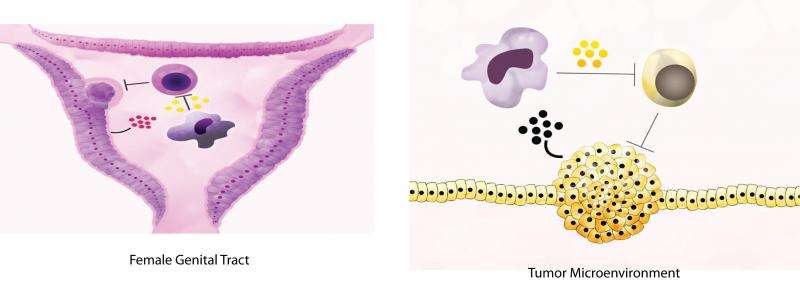Female immune response could hold key to new cancer therapies

An understanding of natural immune suppression mechanisms in the female reproductive tract could lead to new ways to combat cancer.
Just after menstruation, the immune response of the female genital tract is "up and running" to stave off sexually transmitted infections. A few days after ovulation, however, the immune response is modulated by a transient increase in a group of immunosuppressive enzymes. This helps make the uterus more hospitable to potential implantation by a semi-foreign embryo.
These enzymes inhibit T cells, which are responsible for targeting and destroying cells infected with foreign microorganisms. Interestingly enough, these same enzymes also increase in tumours, inhibiting the body's natural immune response.
Researchers at the University of the Philippines Diliman (UPD) are studying the female genital tract's natural ability to modulate the immunological milieu during different phases of the menstrual cycle. Their research could ultimately lead to the design of drugs that target immune suppression in tumours. Such drugs could prove helpful to patients who have a low tolerance to chemotherapy or require combinatorial treatment regimen.
"Over the course of 2015, our research will be focused on gathering sufficient evidence to show that an immune suppression mechanism operating in the female genital tract to support conception also operates in tumour micro-environments," says Dr Joyce Ibana, an associate professor at UPD's Institute of Biology. "Our goal is to demonstrate this phenomenon in vitro."


















